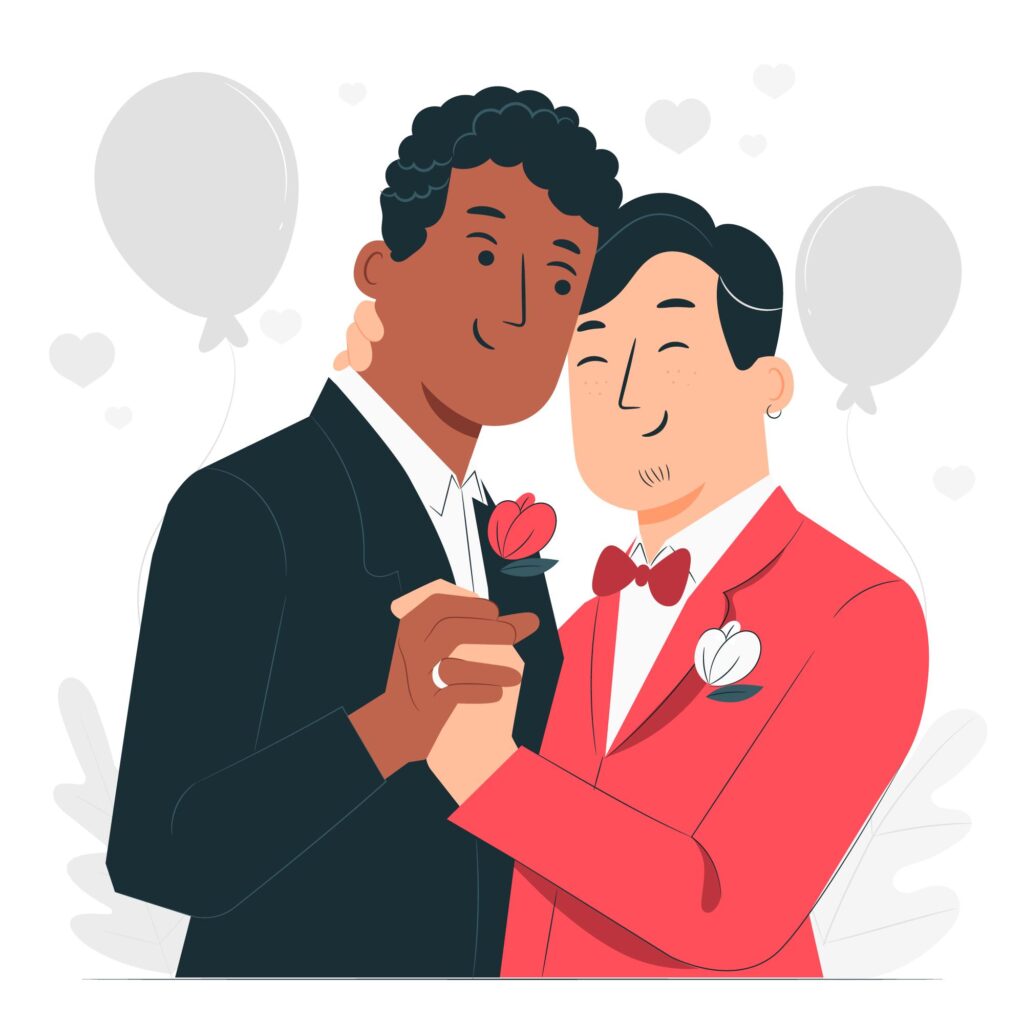Gay marriage has been a controversial issue for many years, with opinions and beliefs varying widely among different individuals and communities. On one hand, there are those who believe that all individuals, regardless of sexual orientation, should have the right to marry the person they love and form a legally recognized union. On the other hand, there are those who believe that marriage should only be between a man and a woman, and that allowing gay couples to marry would undermine the traditional definition of marriage and harm society as a whole.
The Argument in Favor of Legalizing Gay Marriage

Advocates of gay marriage argue that denying same-sex couples the right to marry is a violation of their basic human rights. They point out that all individuals should have equal rights and protections under the law, regardless of their sexual orientation. Furthermore, they argue that denying gay couples the right to marry denies them access to important legal benefits, such as tax benefits, inheritance rights, and the ability to make medical decisions for their partners.
Additionally, supporters of gay marriage argue that legalizing gay marriage would help to reduce stigma and discrimination against the LGBTQ+ community. By recognizing and legitimizing their relationships, it would send a message that gay individuals are just as deserving of love, respect, and recognition as straight individuals.
The Argument Against Legalizing Gay Marriage
Opponents of gay marriage believe that marriage should only be between a man and a woman, and that allowing gay couples to marry would undermine the traditional definition of marriage and harm society as a whole. They argue that marriage has always been seen as a sacred institution that serves to protect and promote procreation and the family unit. By allowing gay couples to marry, they believe that it would weaken the institution of marriage and harm the fabric of society.
Moreover, those against gay marriage argue that legalizing it would lead to a slippery slope and that it would only be a matter of time before other forms of marriage, such as polygamy and incestuous relationships, would be legalized as well. They believe that this would further harm society and weaken the institution of marriage.
The Religious Perspective
Religion plays a significant role in the debate surrounding the legalization of gay marriage. Some religious groups support the legalization of gay marriage, while others vehemently oppose it.
Those who support the legalization of gay marriage argue that the right to marry is a fundamental human right and should not be limited by religious beliefs. They believe that the principles of love, equality, and compassion should guide societal views on the issue.
On the other hand, religious groups that oppose the legalization of gay marriage argue that it goes against their religious beliefs and teachings. They believe that marriage should be between a man and a woman as defined by their religious scriptures, and that same-sex relationships are morally wrong.
The Historical Context of the Debate
The debate over the legalization of gay marriage is not a new one. In fact, the issue has been the subject of public discourse for decades, with some of the earliest recorded instances of activism for gay rights occurring in the late 19th century. In the decades since, the issue has gained increasing visibility, with a growing number of countries around the world legalizing gay marriage, either through legislative means or by court ruling.
Despite the growing number of countries that have legalized gay marriage, the issue remains a highly divisive one, with opponents and proponents alike passionately advocating for their respective positions.
The Role of the Courts in the Legalization of Gay Marriage
In many countries, the legalization of gay marriage has been the result of court rulings, rather than legislative action. This has been the case in the United States, where the legalization of gay marriage has been the result of a series of landmark Supreme Court decisions.
In these cases, the courts have ruled that denying gay couples the right to marry is a violation of their constitutional rights to equal protection and due process. These decisions have been met with both celebration and condemnation, with proponents of gay marriage hailing them as a victory for human rights and opponents decrying them as an overreach of judicial power.
The Social and Political Implications of Legalizing Gay Marriage

The legalization of gay marriage has far-reaching social and political implications, both positive and negative. On the one hand, legalizing gay marriage is seen as a way to promote equality and reduce discrimination against the LGBTQ+ community. By granting gay couples the right to marry, it sends a powerful message of acceptance and inclusiveness, helping to break down barriers and promote understanding.
On the other hand, the legalization of gay marriage is also seen as a threat to traditional values and social norms. Those who oppose gay marriage argue that it undermines the institution of marriage and threatens the stability of society, potentially leading to a decline in traditional family values.
Conclusion
In conclusion, the debate surrounding the legalization of gay marriage is a complex and emotional one, with valid arguments on both sides. While some believe that all individuals should have the right to marry the person they love, regardless of their sexual orientation, others believe that allowing gay couples to marry would undermine the traditional definition of marriage and harm society as a whole. Ultimately, the decision of whether or not to legalize gay marriage is a societal and political one that must be made by the individuals and communities it affects.


